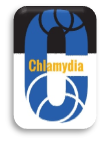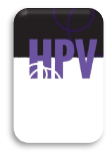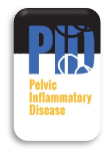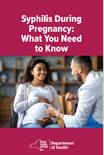Sexually Transmitted Infection Information
To learn more about common sexually transmitted infections (STIs) visit our brochures section.
What are Sexually Transmitted Infections (STIs)?
There are more than 30 infections that are spread through vaginal, anal, and oral sex. Some sexually transmitted infections (STIs) can also be spread through blood, particularly among intravenous (IV) drug users who may be sharing drug equipment (needles, syringes, or "works"). In addition, pregnant people with sexually transmitted infections (STIs) may pass the infection to infants in the uterus (womb), during birth, or through breast-feeding.
Why STI not STD?
This site will now use the term sexually transmitted infection (STI) in place of sexually transmitted disease (STD). The word "disease" suggests noticeable medical problems, while many of the most common sexually transmitted infections have no signs or symptoms, or they are very mild. Even with no signs or symptoms, sexually transmitted infections (STIs) can cause serious health problems, so it is still necessary to get tested and treated for them if you are sexually active.
Why does treatment matter?
Without treatment sexually transmitted infections (STIs) can cause major health problems such as not being able to get pregnant (infertility), permanent brain damage, heart disease, cancer, and even death. If you think you have been exposed to a sexually transmitted infection, you and your sex partner(s) should visit a health clinic, hospital, or doctor for testing and treatment.
Where to get tested for STIs?
For more information about sexually transmitted infection (STI) testing speak with a health care provider.
You can access sexual health services, including finding a sexually transmitted infection (STI) provider, by visiting the Provider Directory.
Syphilis During Pregnancy - Syphilis can have major health impacts on your baby. Protect your baby from being born with syphilis (congenital syphilis) by getting tested for syphilis during your pregnancy. Syphilis infection can occur during pregnancy and can cause serious health problems for both the pregnant person and their baby.
Doxy-PEP (Doxycycline Post-Exposure Prophylaxis) - Learn about a new medication option to help prevent STIs when taken after condomless sex.
Expedited Partner Treatment (EPT) - Expedited Partner Treatment (EPT) allows health care providers to give medication or a prescription to patients diagnosed with chlamydia, gonorrhea, and/or trichomoniasis to deliver to their sex partners, so they can also be treated, without requiring an examination.
Mpox - mpox is a viral infection that is primarily spread through close, intimate contact (e.g., oral, anal, or vaginal sex; kissing; face-to-face contact). Transmission occurs through direct contact with:
- Mpox sores, scabs, or rashes; and
- Respiratory droplets, saliva, or mucus of someone with mpox.
Sexually Transmitted Infection (STI) Brochures
Sexually transmitted infections (STIs) are common, but most can be cured, and all can be treated.
Since a sexually transmitted infection (STI) may not have symptoms, getting tested is the only way to know for sure if you have one. Getting treated early can prevent the chance of long-term health problems.
Syphilis

Syphilis (PDF) is caused by bacteria that enter the body during oral, vaginal, or anal sex. It can also enter the body through small cracks in the skin if an area is exposed to the bacteria. It can lead to serious health problems but can be cured.
Gonorrhea

Gonorrhea (PDF) is caused by bacteria that enter the body during oral, vaginal, or anal sex. It can infect the genitals (penis, vagina), mouth, and rectum. It can be prevented, and it can be cured. Without treatment, gonorrhea can cause serious damage.
Chlamydia

Chlamydia (PDF) is caused by bacteria that can be passed through oral, anal, or vaginal sex. Chlamydia can infect the genitals (penis or vagina), throat, and rectum. It can be prevented, and it can be cured.
Trichomoniasis

Trichomoniasis (PDF) (also called trich) is the number one cause of vaginal infections spread through sex. Many people with trich do not have symptoms so they do not get treated. It can cause problems during pregnancy.
Herpes

Herpes (PDF) is a skin infection caused by the herpes simplex virus (HSV). There are two types of herpes that are sexually transmitted infections (STIs), meaning you can get them through someone during sex or direct skin-to-skin contact. Herpes can be prevented, and it can be treated.
Genital Warts (HPV)

Genital Warts (HPV) (PDF) The human papillomavirus (HPV) is a virus that can be spread through vaginal, anal, or oral sex. There are some types of HPV that can cause genital warts. Others can cause certain types of cancer. The HPV vaccine can protect people from getting genital warts and cancers caused by HPV.
Bacterial Vaginosis (BV)

Bacterial Vaginosis (BV) (PDF) is a common vaginal infection. Women who are sexually active are much more likely to get BV. It is not known if BV is spread through sex, but having vaginal sex with a new partner or with more than one partner can upset the balance of bacteria in the vagina which can cause BV.
Pelvic Inflammatory Disease

Pelvic Inflammatory Disease (PDF), or PID, is an infection of the female reproductive system. This includes the uterus, fallopian tubes, ovaries, and inside the lower belly (abdomen).
Syphilis During Pregnancy

Syphilis During Pregnancy (PDF) - A pregnant person with syphilis can pass the infection to their unborn child. This is called congenital syphilis.